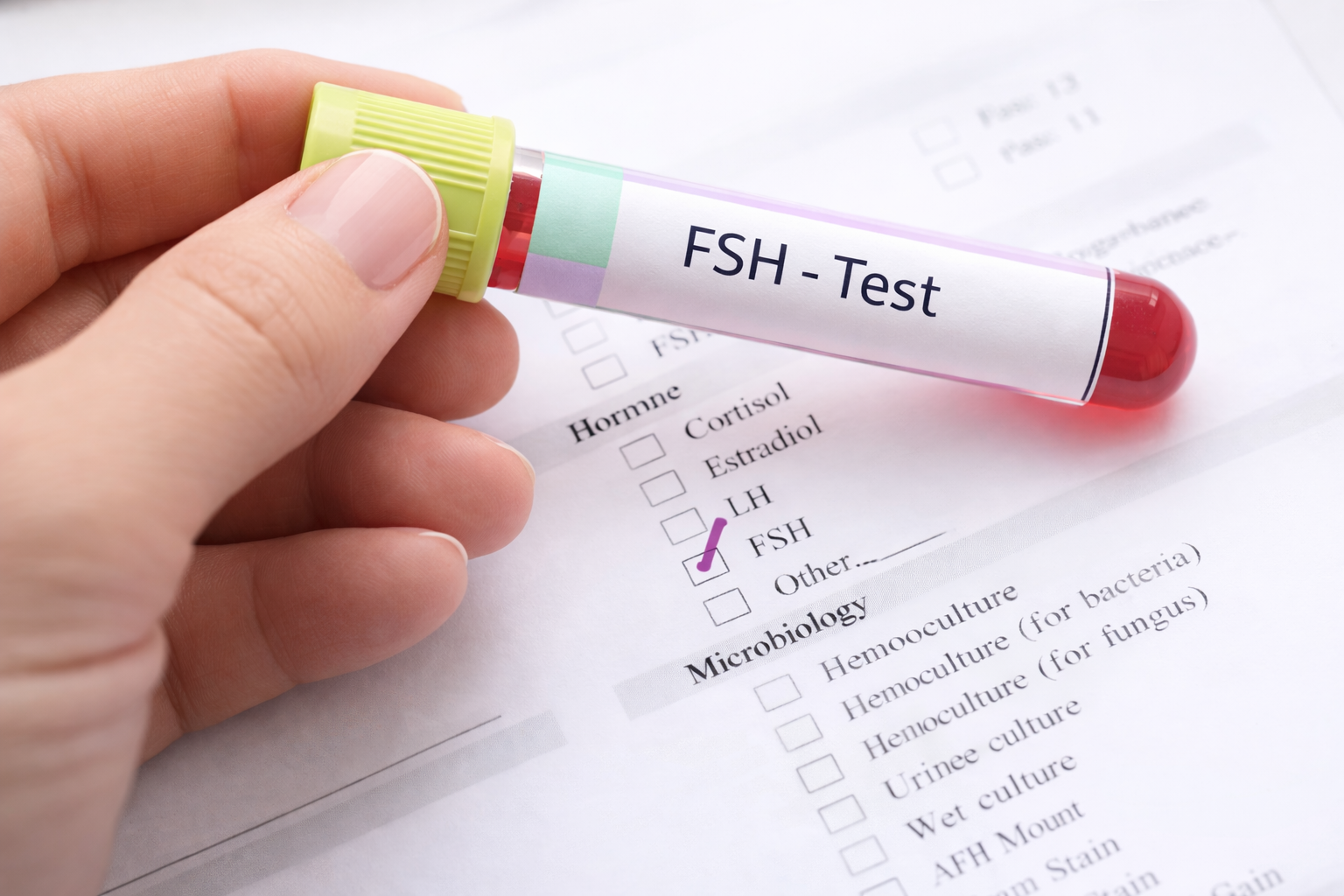Say goodbye to perimenopause symptoms with these 10 vitamins and supplements. Here’s what the research shows about which supplements to try, depending on your symptoms.

Say goodbye to perimenopause symptoms with these 10 vitamins and supplements. Here’s what the research shows about which supplements to try, depending on your symptoms.
The 10 Best Supplements for Perimenopause: Science-Backed Guide
Is perimenopause making you mentally foggy, stressed, and anxious? Are hot flashes driving you crazy? Are you tired all the time? The first thing to remember is: you don’t have to suffer in silence!
There are ways to get relief, including key vitamins and supplements that can help you manage these perimenopause symptoms and more.
We’ve rounded up the 10 best vitamins and supplements for perimenopause, all backed by sound scientific evidence. Read on to find out which you should consider taking, and how they can help ease your perimenopause symptoms.
Can vitamins and supplements help with perimenopause symptoms?
Vitamins and supplements do more than just help your body function. They can also help you manage some of the most common perimenopause symptoms, including:
- Hot flashes and night sweats (vasomotor symptoms)
- Brain fog
- Fatigue
- Emotional symptoms
- Weight gain
- Bone loss
- Muscle loss
- Joint pain
- Trouble sleeping
- Headaches and migraine
For instance, perimenopause vitamins and supplements that support emotion regulation (like magnesium, B vitamins, and omega-3 fatty acids) may help stabilize perimenopause mood swings. Those that boost bone health and muscle strength (think: vitamin D, calcium, and magnesium) can help keep your body strong and lower the risk of falls and fractures.
Let’s take a look at the 10 best vitamins and supplements for perimenopause, ideal for calming symptoms and easing your transition to menopause.
The 10 best perimenopause supplements
1. Vitamin D
Vitamin D is first up on our list of perimenopause vitamins and supplements.
Vitamin D is crucial for supporting bone health [1]. Remember: bone loss increases significantly during perimenopause and postmenopause, so managing bone health is an important part of menopause care.
Vitamin D also helps support muscles, and can reduce inflammation to relieve muscle aches and joint pain [1]. It may also contribute to keeping weight stable [2].
Vitamin D may offer support for mood symptoms and emotion regulation, too, since a vitamin D deficiency may be linked to depression, but more research is needed [3].
2. Calcium
Calcium is another great supplement for perimenopause.
Calcium is also essential for supporting bone health, strength, and density, particularly when combined with vitamin D [4]. Again, bone health management is key during perimenopause!
Some research suggests that calcium may also play a role in slowing and stabilizing perimenopause weight gain, although research is ongoing [4].
3. Magnesium
Next up among the best perimenopause supplements is magnesium.
Like vitamin D and calcium, magnesium is another key player in supporting bone health, and the more bone support during perimenopause, the better [5].
Magnesium may also help boost mood and lower the risk of depression and depressive symptoms [6]. Plus, magnesium helps prevent headaches and migraine, and may also help you get better sleep [7,8].
4. B vitamins
B vitamins can address a wide variety of perimenopause symptoms, placing this group squarely among the best vitamins for perimenopause.
Vitamin B12 and vitamin B6 can help manage perimenopause emotional symptoms, including mood swings, stress, and anxiety. Both help lower the risk of depression, particularly in women [9]. Vitamin B6 also plays an important role in producing dopamine and serotonin, two brain chemicals that are essential for regulating mood [10].
Vitamin B12 may also help combat perimenopause brain fog, since low B12 levels may be associated with brain fog symptoms like difficulty thinking and memory issues [11].
Plus, vitamins B1, B2, B6, and B12 help convert the food you eat into energy, meaning these vitamins can help boost energy levels. This impact may be highest in people with vitamin B deficiencies [12].
5. Omega-3 fatty acids
Omega-3 fatty acids are also among the best perimenopause supplements, offering a variety of benefits.
This group of polyunsaturated fats (the healthy fats) can help relieve depressive symptoms and anxiety in order to enhance emotional well-being and boost mood [13,14].
Omega-3 fatty acids also support your brain and can help clear perimenopause brain fog. Key functions like memory, word recall, attention, and information processing speed may all improve with this perimenopause supplement [15].
Plus, omega-3 fatty acids lower inflammation, helping to ease perimenopause symptoms like joint pain and swelling, as well as skin changes like skin inflammation and acne [16,17]. In the long term, lowering inflammation with omega-3 fatty acids also supports heart health [18].
6. Iron
For those who have an iron deficiency, iron is another useful perimenopause supplement.
Research shows that iron supplements can help manage tiredness (like from perimenopause fatigue) and boost energy levels [19]. When you’re more alert and ready to take on your day, you may also feel less stressed and more emotionally stable.
If you don’t have low iron to begin with, though, skip this supplement and talk to your doctor about other options for boosting energy. Too much iron can be harmful for your health.
7. Probiotics
Probiotics are next on our list of the best supplements for perimenopause.
Probiotics are live bacteria and yeasts that help maintain a healthy gut microbiome. The gut microbiome, or the population of friendly microorganisms that live in your gut, plays a key role in physical and mental health.
Probiotics promote a diverse gut microbiome (the more diverse, the healthier and the better). This is especially important during perimenopause, when the composition of your gut microbiome changes. Nourishing a thriving gut microbiome with probiotics can help regulate digestion, bloating, mental health, and bone health [20].
Probiotics and the gut microbiome may even help balance your hormones. The two influence how and when hormones like estrogen and progesterone are broken down. This impacts the levels circulating in your body, which could ease perimenopause hormone fluctuations and relieve symptoms [20].
8. Black cohosh
Black cohosh, a plant, is also among the best supplements for perimenopause.
Black cohosh may help ease physical perimenopause symptoms overall. It appears to be particularly effective for reducing hot flashes and night sweats, meaning black cohosh may keep you cooler when vasomotor symptoms try to crank up the heat [21].
9. Ashwagandha
The plant ashwagandha holds promise as a perimenopause supplement, and research is ongoing.
Ashwagandha may help lower stress and anxiety. It may also improve sleep, including how long you take to fall asleep, how long you stay asleep, and sleep quality [22].
Ashwagandha may also help regulate your hormone balance – including estrogen, luteinizing hormone (LH), and follicle-stimulating hormone (FSH) levels – and ease related perimenopause symptoms. This could be linked to its influence on the endocrine system, which produces hormones [23,24].
10. Soy isoflavones
Last (but not least!) on our best perimenopause supplements list: soy isoflavones.
This dietary supplement is made from soybeans containing phytoestrogens (plant-derived compounds that mimic the effects of estrogen in the body).
Soy isoflavones may provide natural estrogen support, helping to regulate estrogen levels and overall hormone balance [25]. This perimenopause supplement may also improve night flashes and vaginal dryness [26].
How to choose the right perimenopause vitamins for you
If you’re interested in trying vitamins and supplements for perimenopause, it’s important to choose carefully. Work with your healthcare providers to ensure that you use high-quality, pure, and safe products, and that your chosen supplements are safe for you specifically (including for your medical history and current medication use).
Think about which perimenopause symptoms you want to address, too. For instance, the best supplements for perimenopause brain fog may be B vitamins and omega-3 fatty acids. The best supplements for perimenopause weight gain may include vitamin D, calcium, and probiotics.
As you and your doctor build your personalized perimenopause supplement routine, track factors like:
- Dosage
- Changes in symptoms
- Side effects
How to create your perimenopause care strategy
Perimenopause vitamins and supplements aren’t a fix on their own, but part of a larger care strategy.
To best support your body and mind on your perimenopause journey, combine vitamins and supplements with:
- A nutritious, balanced diet
- Regular exercise
- Good sleep hygiene
- Stress reduction
- Activities and hobbies that bring you joy
- Time spent with friends and loved ones
Certain medications can also help you manage perimenopause symptoms as needed, including:
- Hormone replacement therapy (HRT)
- Hormonal birth control
- Certain antidepressants
- Vaginal moisturizers and lubricants
Best supplements for perimenopause: The bottom line
These 10 vitamins and supplements can help you manage perimenopause symptoms and get relief, so you can transition into menopause confidently and comfortably.
If you’re interested in including vitamins and supplements in your perimenopause care strategy, talk with your doctor about which options may be right for you and your symptoms. Working as a team ensures that your health and safety are the top priorities.
About the author

Sources
- NIH, Office of Dietary Supplements. (2025). Vitamin D – Fact Sheet for Health Professionals.
- British Menopause Society. (2023). Menopause: Nutrition and Weight Gain.
- Cheng YC, et al. (202). The effect of vitamin D supplement on negative emotions: A systematic review and meta-analysis.
- NIH, Office of Dietary Supplements. (2025). Calcium – Fact Sheet for Health Professionals.
- NIH, Office of Dietary Supplements. (2022). Magnesium – Fact Sheet for Health Professionals.
- Porri, et al. (2021). Effect of magnesium supplementation on women’s health and well-being.
- Pavlović JM. (2018). Evaluation and management of migraine in midlife women.
- Arab A, et al. (2022). The Role of Magnesium in Sleep Health: a Systematic Review of Available Literature.
- Wu Y, et al. (2022). Associations of dietary vitamin B1, vitamin B2, vitamin B6, and vitamin B12 with the risk of depression: a systematic review and meta-analysis.
- Field DT, et al. (2022). High‐dose Vitamin B6 supplementation reduces anxiety and strengthens visual surround suppression.
- Köbe T, et al. (2016). Vitamin B-12 concentration, memory performance, and hippocampal structure in patients with mild cognitive impairment.
- Lee M-C, et al. (2023). A functional evaluation of anti-fatigue and exercise performance improvement following vitamin B complex supplementation in healthy humans, a randomized double-blind trial.
- Liao Y, et al. (2019). Efficacy of omega-3 PUFAs in depression: A meta-analysis.
- Su K-P, et al. (2018). Association of Use of Omega-3 Polyunsaturated Fatty Acids With Changes in Severity of Anxiety Symptoms.
- Del Moral AM & Fortique F. (2019). Omega-3 fatty acids and cognitive decline: a systematic review.
- James M, et al. (2010). Fish oil and rheumatoid arthritis: past, present and future.
- Thomsen BJ, et al. (2020). The Potential Uses of Omega-3 Fatty Acids in Dermatology: A Review.
- Furman D, et al. (2019). Chronic inflammation in the etiology of disease across the life span.
- Vaucher P, et al. (2012). Effect of iron supplementation on fatigue in nonanemic menstruating women with low ferritin: a randomized controlled trial.
- Peters BA, et al. (2022). Spotlight on the Gut Microbiome in Menopause: Current Insights.
- Sadahiro R, et al. (2023). Black cohosh extracts in women with menopausal symptoms: an updated pairwise meta-analysis.
- NIH, Office of Dietary Supplements. (2025). Ashwagandha: Is it helpful for stress, anxiety, or sleep? Fact Sheet for Health Professionals.
- Wiciński M, et al. (2023). Can Ashwagandha Benefit the Endocrine System?—A Review.
- Gopal S, et al. (2021). Effect of an ashwagandha (Withania Somnifera) root extract on climacteric symptoms in women during perimenopause: A randomized, double-blind, placebo-controlled study.
- Khapre S, et al. (2022). The Impact of Soy Isoflavone Supplementation on the Menopausal Symptoms in Perimenopausal and Postmenopausal Women.
- NIH, National Center for Complementary and Integrative Health. (n.d.). Menopausal Symptoms and Complementary Health Approaches: What the Science Says.
About the Oova Blog:
Our content is developed with a commitment to high editorial standards and reliability. We prioritize referencing reputable sources and sharing where our insights come from. The Oova Blog is intended for informational purposes only and is never a substitute for professional medical advice. Always consult a healthcare provider before making any health decisions.



